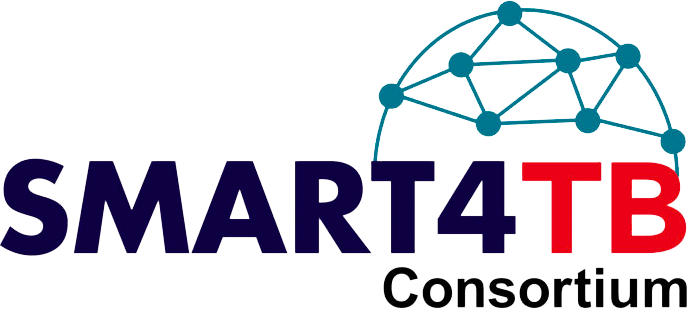Evidence can only have an impact on the TB epidemic if the research is designed with end-users’ needs in mind, and successfully translated into global and national policy. To this end, SMART4TB has a cross-cutting focus on community engagement and policy translation across all activities.

Policy Translation

Erica Lessem
Johns Hopkins University

Eric Goosby
University of California, San Francisco

Erin McConnell
Treatment Action Group

Cosette Audi
Elizabeth Glaser Pediatric AIDS Foundation

Mustapha Gidado
KNCV Tuberculosis Foundation

Madlen Nash
Johns Hopkins University
-
Community engagement in research: All SMART4TB studies feature input from affected communities. SMART4TB invests in and supports strengthening the TB knowledge and research literacy of TB-affected communities and civil society via CABLab, an online learning curriculum, to participate actively in every stage of the research process, from design to implementation through results dissemination. The engagement and input of affected communities is necessary at every stage of our research process. Our primary mechanism for this is via Community Advisory Boards (CABs) covering three regions. Regional CAB members sit on SMART4TB study teams, review protocols and other study materials, advise SMART4TB access discussions, and review operational research proposals. Regional CABs will also engage with and support site-level community engagement mechanisms. Community stakeholders will also play a catalytic role in supporting rapid adoption of evidence-based policies and generating demand for new innovations.
-
Advancing the inclusion of pregnant people in research: A key issue at the intersection of research, community engagement, and policy is ending the neglect of pregnant people from TB research. SMART4TB is committed to the scientifically and ethically sound inclusion of pregnant participants in our own research, and advancing inclusion in the TB field more broadly. In late 2023, SMART4TB and partners convened a pivotal meeting that informed a community consensus statement and launched a World Health Organization-led process to advance the inclusion of pregnant and breastfeeding women in TB research. SMART4TB is leading the advocacy working group of the WHO process.
-
Advancing access from the outset: Research can only save lives if its fruits are accessible, affordable, and available. To ensure the impact of evidence generated by SMART4TB studies, the Consortium is building conditions into our research agreements that will support access to SMART4TB innovations once developed.
-
Uptake of evidence-based policies: SMART4TB works closely with leading multilateral and national partners to garner their input so that SMART4TB research is designed to meet policy needs. SMART4TB’s theory of change includes the idea that supporting and encouraging local, national, and global actors to implement the best available tools to fight TB now is essential for equity and progress, and will help pave the way for future innovations. SMART4TB supports the 1/4/6×24 campaign, and advocates for making good on commitments made at the United Nations High-Level Meeting on TB.
SMART4TB works closely with three regional CABs: Afrocab Treatment Access Partnership representing the African region, APCASO representing Asia-Pacific, and Eurasian Community for Access to Treatment (ECAT) representing Eastern Europe/Central Asia.
The Global TB CAB site-level CABs working at SMART4TB study sites are also valued partners in our community engagement and eventual policy translation work, as are external partners including Stop TB Partnership’s Challenge Facility for Civil Society grantees.
At the global level, SMART4TB works with leading multilateral institutions including the World Health Organization and the Stop TB Partnership, as well as funders such as the Global Fund, the Gates Foundation, and Unitaid.


